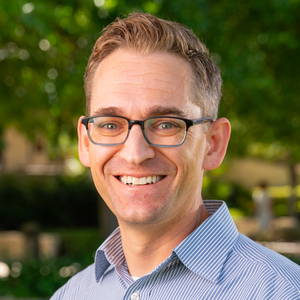The worst job of my life, hands down, was a summer I spent in the basement of a photo processing plant in San Diego — a fumy facility where stores across Southern California would send rolls of film to be developed. (Remember film?)
Each morning, I’d clock in at 4 a.m., descend a narrow staircase and proceed to spend the next eight hours tossing envelopes of photos into a hulking machine that sorted them into big bags according to destination.
It was miserable.
The problem wasn’t just the ungodly start time or the endless monotony. It was the sense that I wasn’t really doing anything. What eternal value could there possibly be in making sure other people’s family pictures made it on a truck back to the right Walmart? Having spent the previous summer as a Christian camp counselor, where it was easy to see how my work served God’s purposes, it now seemed like 40 hours a week were going to waste.
I wasn’t alone in those feelings. As Biola professor Klaus Issler writes in this issue’s cover story, a great many Christians today who have “secular” jobs struggle to know what it means to integrate their faith into their work. Whether they love their jobs or hate them, it can be difficult to make the connection between Sunday life and Monday life. And especially when looking at others who work in full-time vocational ministry, it can be easy to feel like a second-class Christian.
But as Issler argues, if we look to the example of Jesus, this isn’t the way it should be.
Biola, of course, has many ways of trying to bridge the Sunday-Monday gap. Not least of these is the “business as ministry” approach of the university’s Crowell School of Business, or the integration classes required of all seniors, which help students in each discipline to see the direct connection between their faith and vocation.
Biola is also working to bridge the gap for non-students. The recently established Leadership Lecture Series — which can be found for free on YouTube — has brought major business leaders and theologians together over the past year to offer biblical wisdom to people in the business world and beyond. I encourage you to check them out.
Finally, if you only read one other thing in this issue, make sure you don’t miss Brett McCracken’s feature on student Dianey Burgos. We don’t run multipage profile pieces often, but Dianey’s story is worth it.
 Biola University
Biola University
.jpg)

